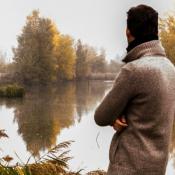 Being in relationships is a natural and necessary part of life. Human beings are designed to form bonds with each other. In fact, a lack of healthy bonds with other people can cause a variety of symptoms, including depression, anxiety, addictive behaviors, and so on.
Being in relationships is a natural and necessary part of life. Human beings are designed to form bonds with each other. In fact, a lack of healthy bonds with other people can cause a variety of symptoms, including depression, anxiety, addictive behaviors, and so on.
But if it’s so natural, why is it so difficult for many people to form healthy attachments? The relationship lessons that they have received in life may be at fault.
If you watch most small children, you will see that they are natural-born relationship seekers. On the playground, they will spot other children, rush up to them, stare them in the eyes, maybe even take their hands, and begin to play together. If they’re very small, they’ll just sit near each other, playing separately in the sand, separate but together.
It’s similar to dogs. Dogs are also social animals. When they see another dog, they want to engage. “Hello, you’re a dog. I’m a dog, too. Let’s get to know each other.” We can learn a lot from dogs.
Infants seek out the eyes of everyone around them. Sometimes it feels like you’re being pulled in by powerful magnets, the intensity of their stare is so strong. “I see you. Do you see me?”
But then children grow up and stop being so unabashed about their desire to connect. Many adults still long for connection but have learned to hide their wanting.
Most of the knowledge that we’ve received about how to be in relationships comes from the ways in which our immediate families interacted. As children, we experienced how our families related to us—attentive, dismissive, or unpredictable. We observed how family members related to each other. We learned which emotions can be expressed and which are seemingly better off repressed. We learned strategies to get the love, attention, and connection we needed, or we learned to give up on getting those needs met.
Most of the knowledge that we’ve received about how to be in relationships comes from the ways in which our immediate families interacted.
If you want connection but avoid it; if there’s always a wedge between yourself and others because you’ve learned to hide your true feelings; if you repeat behaviors that result in people distancing themselves from you, it might just mean that you have more to learn. You may have had lousy teachers, a poor lesson plan, or come to the wrong conclusions about the meanings of the lessons.
Here is an example of a common misunderstanding:
Lesson: A person doesn’t love you.
Wrong answer No. 1: You are unworthy of his or her love.
Wrong answer No. 2: He or she is a bad person.
Possible correct answer No. 1: That person does not love you for reasons you may not be able to understand, and it may have nothing to do with you. It doesn’t mean he or she is a bad person.
Possible correct answer No. 2: You may have behaviors that cause others to distance themselves from you. It could be beneficial to learn about those behaviors so you can have more control over them. Those behaviors don’t mean you’re unworthy of love.
The lesson here is that it’s in our nature for people to love and be loved, but it can be a complicated one to learn. The first step is to forgive ourselves for our difficulties. The second step is to seek out new teachers and reexamine old conclusions. We may never be able to return to the open-eyed trust of our infancy, but we may be able to restore some of our natural ability to form relationships.

The preceding article was solely written by the author named above. Any views and opinions expressed are not necessarily shared by GoodTherapy.org. Questions or concerns about the preceding article can be directed to the author or posted as a comment below.

 I’m OK, You’re Not OK … and That's Perfectly OK
I’m OK, You’re Not OK … and That's Perfectly OK Amputated Relationships and Attachment: How to Let Go
Amputated Relationships and Attachment: How to Let Go Neediness Rocks, and Here's Why
Neediness Rocks, and Here's Why

Please fill out all required fields to submit your message.
Invalid Email Address.
Please confirm that you are human.
Leave a Comment
By commenting you acknowledge acceptance of GoodTherapy.org's Terms and Conditions of Use.